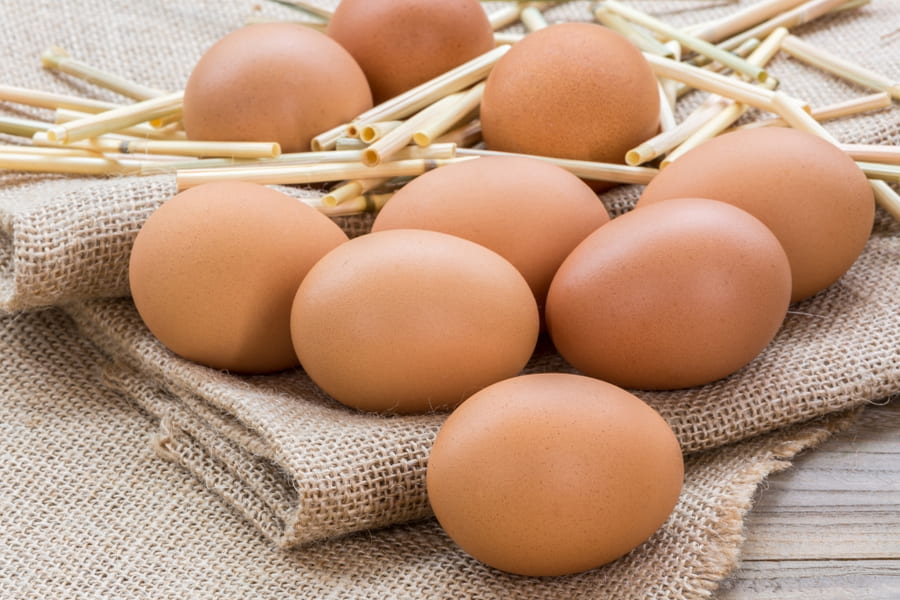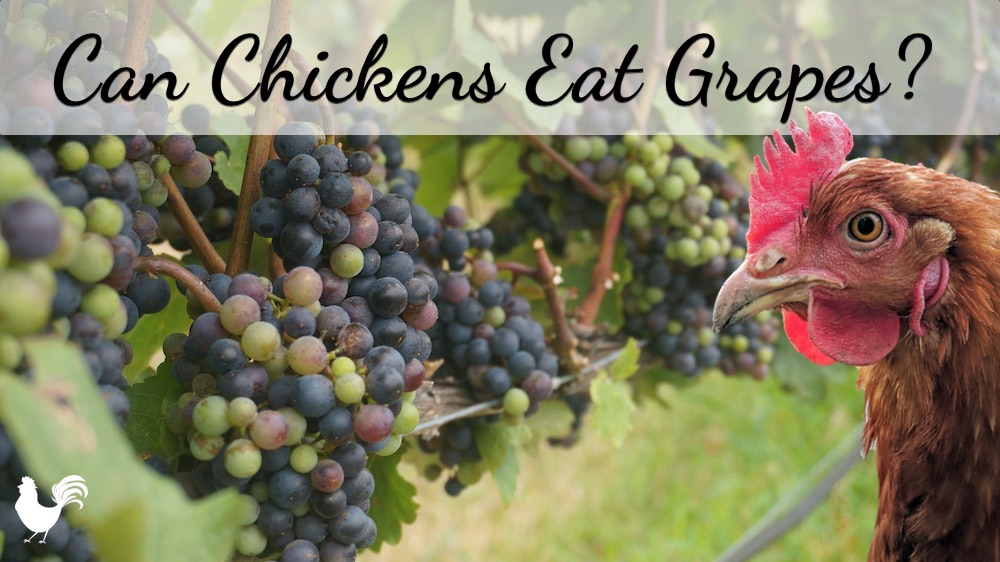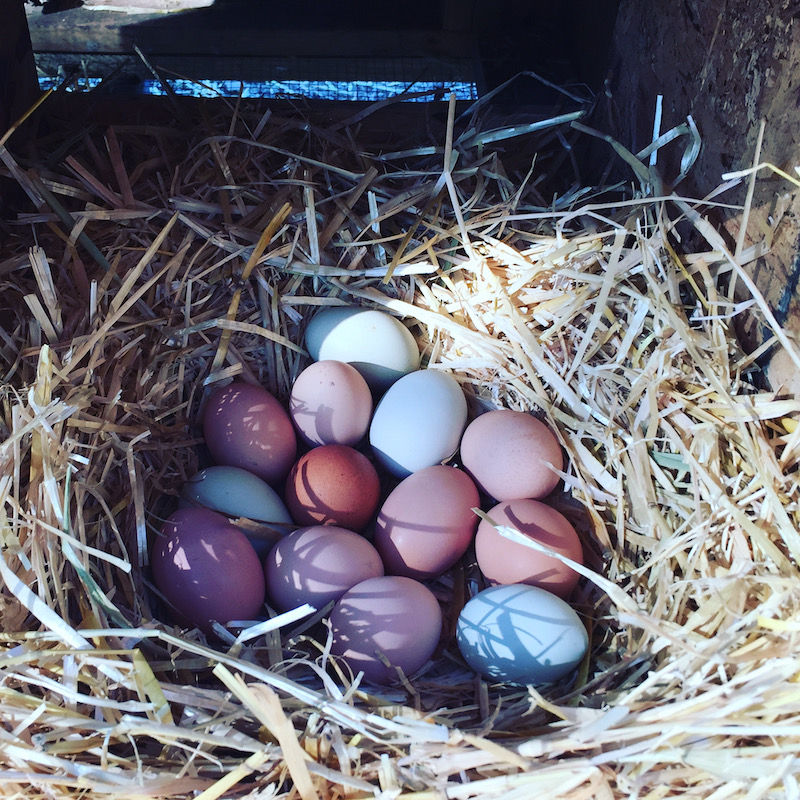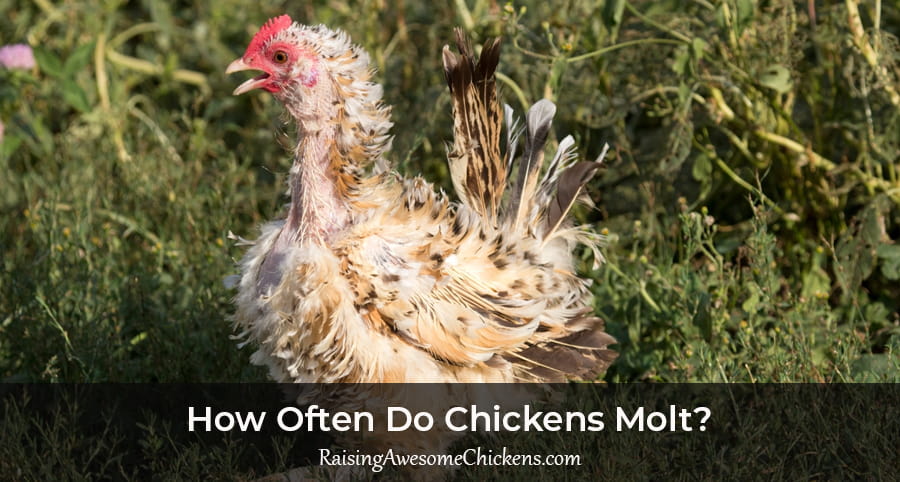Last Updated on February 7, 2022 by AwesomeChickens
It is not a topic many chicken owners like to talk about, but worms are a natural part of life in many types of animals, and poultry is no exception. If you raise chickens and are concerned they may have worms, knowing how to check for these creatures as well as how to get rid of them can be a matter of life and death for your flock.
The best way to naturally deworm your chickens is by adding natural ingredients to their diets, such as pumpkin, dill, garlic, and nasturtium. Combine these natural foods to paralyze the parasite and then combine in with natural dialects such as plain yogurt or molasses to flush them out of your chicken’s system.
If you are concerned that your chickens are dealing with a worm overload, you really need to read this article to understand how to identify a worm problem and precisely what you need to do to treat it.
Table of Contents
How Do You Get Rid of Worms in Chickens Naturally?
If your chickens have an overabundance of worms and you need to treat them to keep them healthy, there are many foods that are good for your bird’s diet but are known to take out parasites.
Here is a list of natural foods that are known to paralyze parasites in chickens:
- Watermelon
- Carrots
- Garlic
- Cucumber
- Dill
- Nasturtium
- Dill
- Squash
- Plantain
- Chicory
- Hyssop
- Pumpkin
- Mint
Once the parasite is paralyzed, it can then be flushed out of your chicken’s system by feeding them a natural diuretic which includes but is not limited to molasses, plain yogurt, and dandelion greens.
It is a good idea to try and incorporate these items in your chicken’s diet as often as you can, keeping your chickens free from parasites as much as possible.
Do I Need to Deworm My Chickens?

The majority of chickens do have some sort of parasite living in their system. Usually, they are not dangerous and do not need to be treated. For the most part, these worms can hang out in your bird’s system without causing any type of damage.
The problem starts to arise when the worms become overabundant and start to cause your chickens to become ill. Although it doesn’t often happen when it does, it can be very dangerous and lead to death in your flocks.
If you start to notice signs of worm problems, take a sample of your chicken’s poop to the vet and have them check for a parasitic invasion. If they do see trouble brewing, they can prescribe a dewormer or help you choose the best natural approach.
What Are the Symptoms of Chickens with Worms?
If your chickens start to act strangely, they may be experiencing a worm overload, and without treatment, they may die. Here are some significant symptoms to watch for if you believe worms may be a troubling issue:
- Dirty or ruffled feathers
- Lack of egg production
- Pale yolks in the eggs
- Rapid weight loss
- There are worms in the chicken’s eggs
- Excessive eating
- Lethargic or less energy than usual
- Pale comb
- Coordination problem
- Pale waddles
These are all symptoms that should tell you there is something seriously wrong with your chicken, and that medical attention should be provided immediately.
What to Feed a Chicken Recovering from Worms
After a chicken has been dewormed, it’s vital that they get its vitamins, nutrients, and proteins built back up in order for them to feel better and have the ability to continue producing eggs (if that’s what you are raising them for.)
The best way to do this is by providing your birds with the best pellets and whole grains available while also incorporating healthy foods such as fruits and vegetables into their diets as much as possible.
Can You Feed Chickens Eggs?

Although it may be hard to believe, chickens actually enjoy the taste of eggs, and they are very good for them. If your birds are trying to recover from a worm infestation, feeding them eggs provides a lot of needed vitamins, nutrients, and proteins.
Chickens can eat every part of the egg, from the yolk to the shell. Actually, people will often feed shells back to their chickens on a regular basis, especially to hens that are laying. These shells provide a large amount of calcium to help replenish their supply.
What vitamins do you give to chickens?
Chickens can benefit from a wide variety of vitamins. You can typically find these vitamins in a single pouch in any farm store around, online, or through your veterinarian. The best vitamins you can give to your chickens include but are not limited to:
- Vitamin D
- Calcium
- Vitamin B
- Vitamin C
- Folic acid
- Niacin
How To Prevent Worms
The best way to treat worms in your chickens is by preventing them from getting to them in the first place.
Keep the Coop Clean: Having piles of infected chicken poop covering the chicken coop floors can lead to the spread of worms from one chicken to another.
Prevent Chickens from pecking at the ground: Try to keep food from piling up on the floor and avoid pecking at the freshly dug-up ground. This is to keep your chickens from eating parasitic bugs or coming into close contact with already-infected feces from other birds.
Avoid Contact with Wild Birds: It is much more common for wild birds to have parasites than farm chickens; they can quickly spread their infestation by pooping in or near your chicken’s coop.
Keep Your Chickens Healthy: Maintaining a healthy flock will increase immunity and decrease the chances of an overload of worm build-up in their systems.
One of the best ways to find a natural dewormer for your flock is by asking around and getting advice from the experts. There are many chicken farmers who say they have never had to deworm their chickens, even after 20 years of raising them, because they know exactly what to give them to prevent a problem, or at least correct it before it becomes too serious.
To Sum Things Up
Deworming chickens doesn’t have to be a tricky and expensive experience. Knowing the right types of foods that will naturally flush parasites and worms from your chicken’s systems can be life-changing for your flock.
Give a few of our tips a try and see if these natural ways to deworm your chickens help you.




